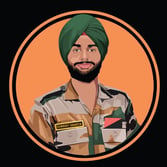Mastering SSB Psychological Tests: Insights from Capt. Joshi’s 17-Year Experience
SSB ASSESSORS
4/19/20252 min read
For every SSB aspirant, cracking the psychological tests is one of the most crucial yet challenging aspects of the selection process. In Episode 228 of the popular YouTube series, Capt. Joshi, a seasoned psychologist with 17 years of hands-on experience, demystifies the intricacies of SSB Psych Tests—namely TAT (Thematic Apperception Test), WAT (Word Association Test), SRT (Situation Reaction Test), and SDT (Self Description Test).
This episode is not just another explainer; it’s a masterclass on what selectors really look for—directly from someone who’s been on the other side of the table.
1. The Purpose Behind SSB Psych Tests
Capt. Joshi begins by shedding light on the core objective of psychological testing in the SSB—identifying Officer Like Qualities (OLQs). These qualities can’t be faked or memorized; they must be reflected consistently across all four tests.
The goal isn't perfection. It's authenticity, clarity of thought, and a balanced personality that shows potential to be groomed into an officer.
2. TAT (Thematic Apperception Test)
In TAT, you are shown a series of ambiguous pictures, and you must weave a story around each. Capt. Joshi’s advice? Don’t go overboard trying to be heroic in every story. The story must be:
Realistic
Positive in intent
Reflective of leadership, empathy, and problem-solving
Key takeaway: It's not about writing a fantasy; it’s about how you process a situation and handle it constructively.
3. WAT (Word Association Test)
A rapid-fire section where you have just 15 seconds per word, WAT is meant to reveal your subconscious personality traits. Capt. Joshi advises avoiding clichés and sticking to original, constructive thoughts.
Instead of just writing a grammatically correct sentence, ask yourself: “What does this word trigger in me?” The test is all about mental clarity and emotional balance.
4. SRT (Situation Reaction Test)
Perhaps the most spontaneous of all tests, SRT evaluates how you respond under pressure or in everyday dilemmas. Capt. Joshi emphasizes:
Speed + Logic + Positivity
Responses must be short, action-oriented, and practical
Avoid vague responses like “He managed the situation well” — be specific!
Each situation is a chance to reflect your decision-making ability, initiative, and maturity.
5. SDT (Self Description Test)
This is your opportunity to reflect on who you are, and what others perceive you as. You’ll write what your parents, teachers, friends, and you yourself think about you.
According to Capt. Joshi:
Don’t try to project a fake image.
Include your strengths, but also a few areas for improvement.
Balance confidence with humility.
6. Common Mistakes to Avoid
Capt. Joshi wraps up the episode by busting some myths and revealing the most common mistakes aspirants make:
Memorizing model answers (interviewers spot it instantly)
Exaggerating qualities or fabricating stories
Focusing too much on being “correct” instead of being “genuine”
7. Final Words from Capt. Joshi
“SSB is not a test to eliminate you—it’s a test to select you. Just be yourself, the best version of yourself.”
His message is simple yet profound. The SSB is not about cracking codes; it's about being a real, grounded, and trainable individual with potential.
Conclusion
This episode is a must-watch for anyone preparing for the SSB. Capt. Joshi, with his deep insight and calm demeanor, brings not just techniques but also clarity and confidence to aspirants.
If you’re tired of rote methods and want to understand the psychology behind SSB, this is the episode you can’t afford to miss.

©Copyright Simrat Sahota- All Rights Reserved


